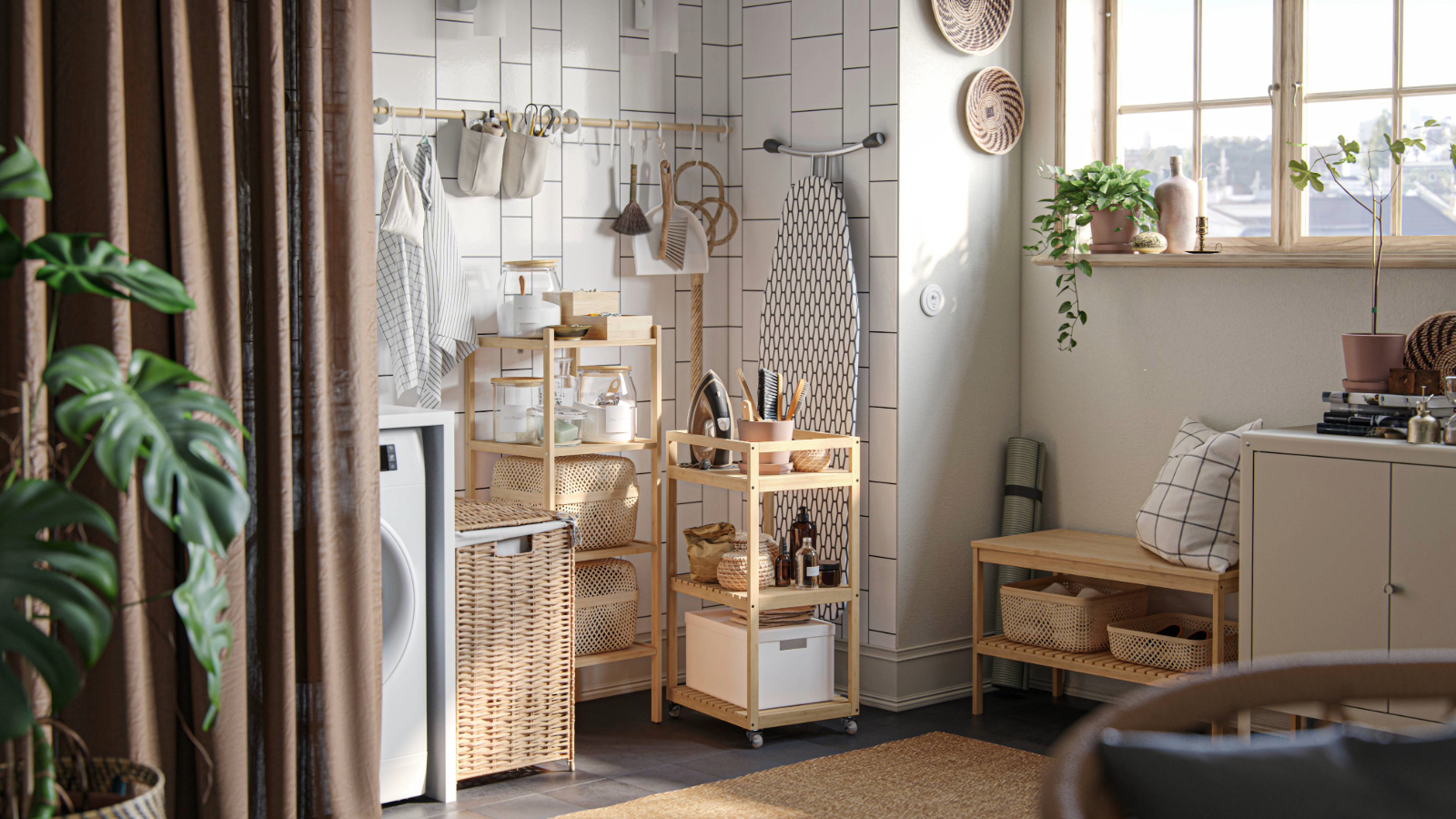Biomass boilers vs heat pumps — how to choose the best system for heating your home
While both systems offer an alternative heating system to fossil fuels, how do they compare? We explore the main differences to help you make the right choice
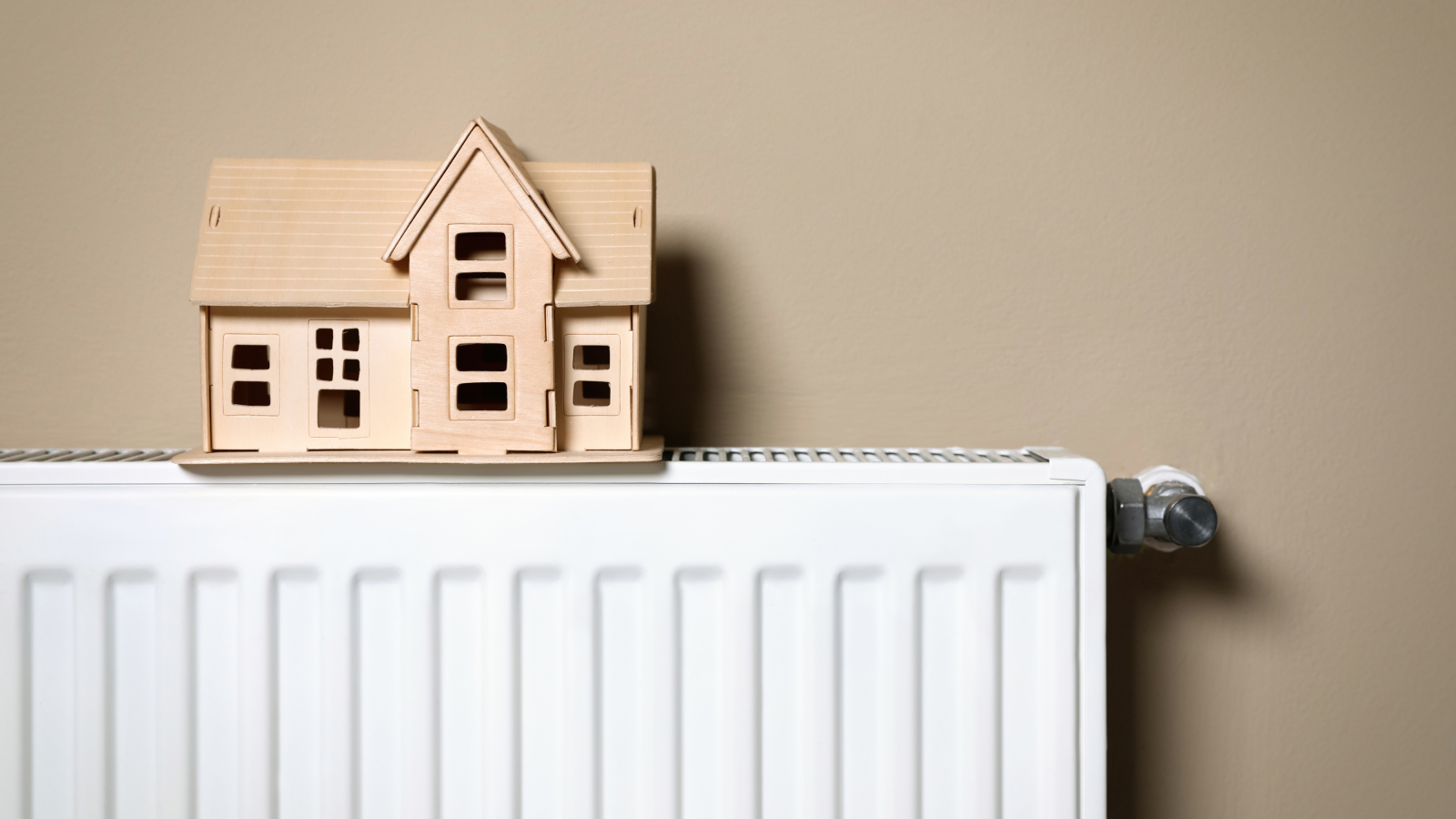
Bring your dream home to life with expert advice, how to guides and design inspiration. Sign up for our newsletter and get two free tickets to a Homebuilding & Renovating Show near you.
You are now subscribed
Your newsletter sign-up was successful
If you're exploring your options for a new heating system, an upgrade or perhaps considering which type of energy efficient heating to use in your self build plans, you'll likely find yourself comparing a number of options, including biomass boilers vs heat pumps.
However, while both solutions offer a viable alternative to fossil fuel system, there are some vast differences to take into account which will undoubtedly influence your final decision.
In this article, we'll cover the main areas of fuel, size, performance and suitability in order to help you understand whether a biomass boiler vs heat pump is more suitable for your home, needs and lifestyle.
Understanding the fuel differences
Fuel is without doubt the biggest main difference between the different systems.
"Air source heat pumps use the air outside and electricity to provide homes with heating and hot water comfort all year round," explains an expert spokesperson from Vaillant.
A biomass boiler on the other hand relies on burning wood based products such as wood pellets, chips or logs to create energy, while a ground source heat pump uses residual ground temperature to heat your home and hot water.
All of them still use electricity to power various parts of the kit, but in essence, whether you're weighing up an air source heat pump vs ground source heat pump, both are are 'fuel-less'. Biomass boilers on the other hand need fuel in the same way as fossil fuel systems require gas, oil or LPG to work.
Bring your dream home to life with expert advice, how to guides and design inspiration. Sign up for our newsletter and get two free tickets to a Homebuilding & Renovating Show near you.
The main impact of this? As well as the cost differentials (air and ground temperature are free, although electricity is not), once installed, heat pumps don't need you to physically feed them with fuel. Biomass boilers do however rely on either manual or automated fuel delivery, or a combination of both.
Why does this matter? As one of the 6 things I wish I'd known before installing biomass, fuel delivery and the loading of it can sometimes be problematic.
So is one type of biomass fuel better than the other? Gordon Traill, founder of Treco says not really, although logs tend to be the most costly and difficult as they can't be fed automatically.
"There are pros and cons with all of them," he says. "Log biomass boilers are quite a lot of effort thought as they have to be topped up regularly. And obviously in the winter, that could be up to three times a day in the very coldest weather. Some people will say it just doesn't work for them as it’s too much hard work. Wood chip or logs can of course work well for those who have their own supply of wood," he adds, "but the most common product for domestic use is wood pellets."
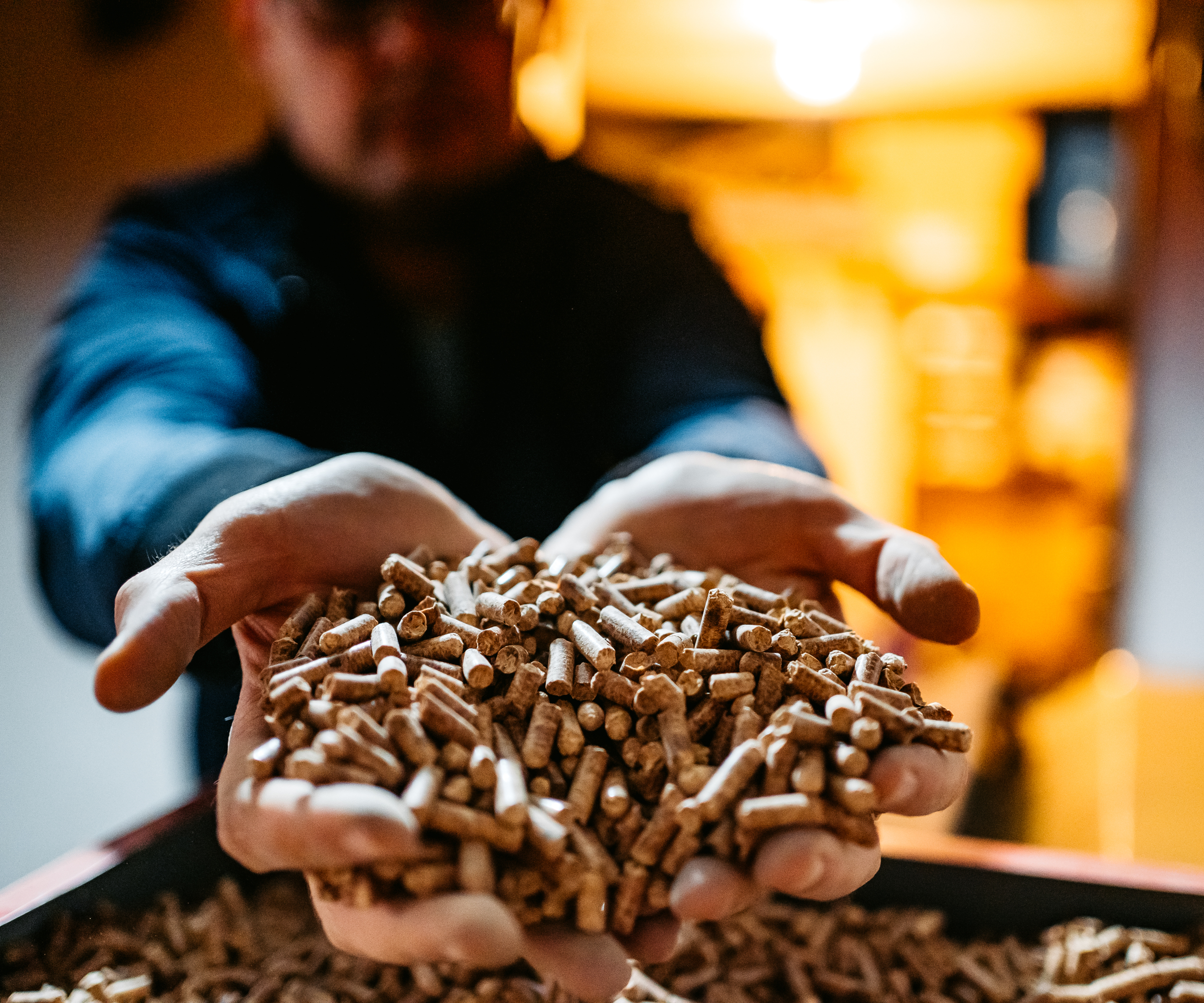

Gordon Traill is founder of Treco, one of the UK’s largest biomass heating suppliers. Founded in 2005, the company has grown into a leading supplier in the biomass heating sector, helping over 1,000 businesses transition from fossil fuels to biomass heating, reducing carbon emissions by 40,000 tonnes annually which is the equivalent of nearly 9,000 cars. Gordon is proud of Treco’s customer-centric approach, always ensuring that any system recommended is one he would personally invest in
Comparing the size of each system
One key similarity between both biomass boilers vs heat pumps is that compared to a gas powered heating system, they require a different level of space not just inside, but also outside your home.
"Heat pumps need a hot water storage cylinder to provide hot water, as they do not work like combi boilers," explains the Vaillant's expert," so space is required for indoor components. Depending on the requirements of your property you may also need a buffer tank, which will require additional space.
"An air source heat pump installation involves citing a unit outside," he continues, "generally in a garden, close to the property. Installing a ground source heat pump on on the other hand, needs suitable land to install either a borehole system or ground array."
Air source | Installation will comprise of an external unit, that in most instances will be floor mounted outside your home, along with a control box and one to two water cylinders inside your home. Space wise it's probably the least impactful of all the options. |
| Row 1 - Cell 1 | |
Ground source | Space within the ground outside and space indoors to house the internal heat pump, and a hot water cylinder. This can often mean that from the off, you simply don't have the necessary land to make this a viable choice. |
| Row 3 - Cell 0 | Row 3 - Cell 1 |
Biomass boiler | Biomass boilers, require their own space and the amount will depend on the size of biomass boiler you need. In general they aren't located in the home and will need their own dedicated plant room. Each system will comprise of a boiler where the fuel is burnt, a thermal store where hot water is stored and a hopper that the fuel is fed into. For larger properties, this can mean you need a space the size of a small garage as a plant room, making it less suitable for smaller or new build homes with limited external space. |
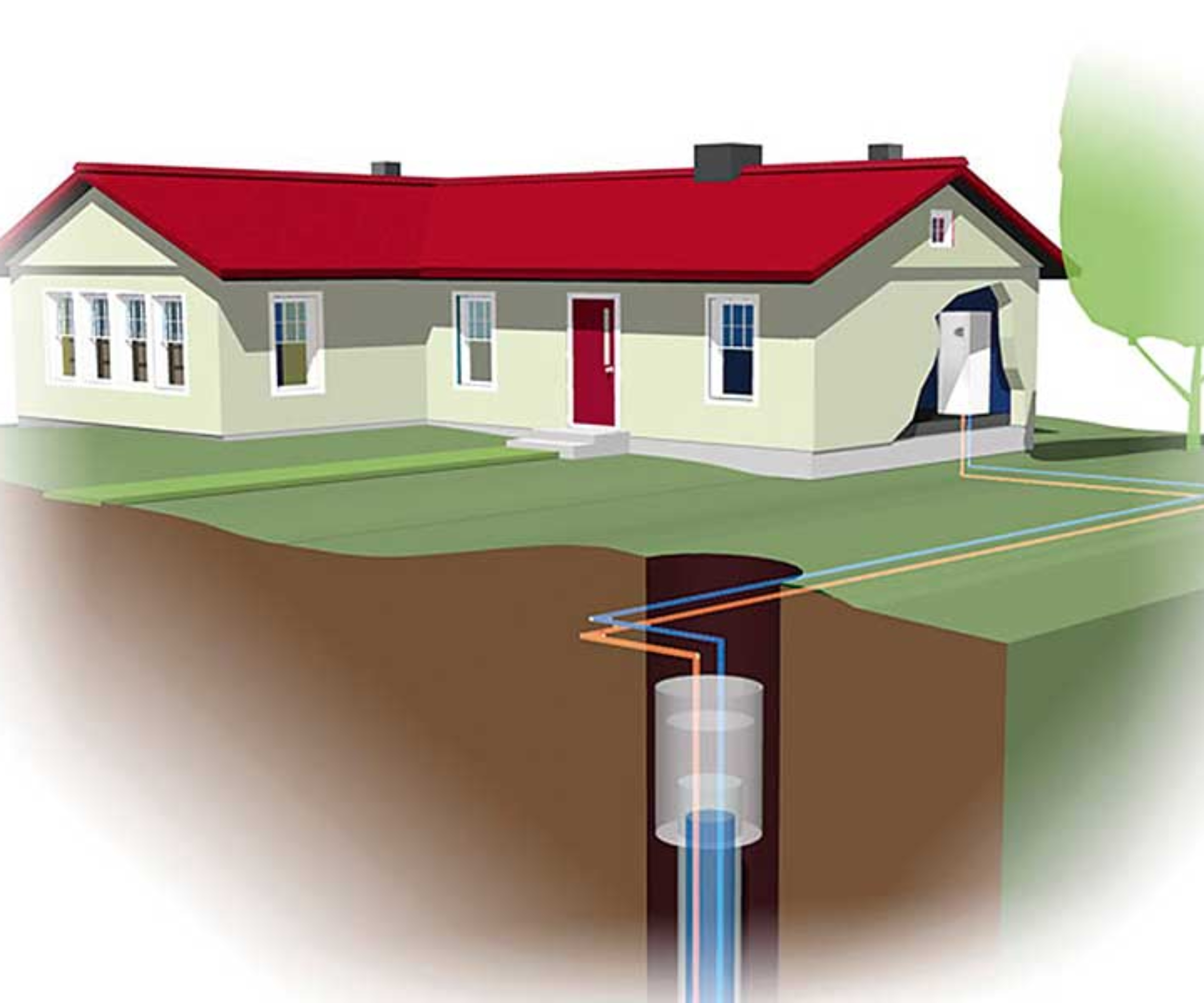
Performance and running costs
Working out the performance levels of biomass boilers vs heat pumps requires assessment of both energy efficiency and costs. But, this is where it can get a little more complicated.
"Heat pumps run at a lower flow temperature than that of a fossil fuel boiler," explains Vaillant's expert. "Usually reaching between 45-55°C in radiators, whereas a boiler would normally run at 60-70°C. Your installer will need to check the radiators in the property, to ensure that they are the correct size to keep the home comfortably warm with the lower flow temperatures." It's therefore advisable to weigh up high vs medium vs low temperature heat pumps if this is the system you are considering for an older property.
In terms of efficiency, there's no disputing the fact that heat pumps win the most efficient title with a 300-400% efficiency rate. Biomass boilers on the other hand are only really comparable to a fossil fuel boiler with an 80-90% efficiency rate.
However, the rising cost of electricity means that the cost for running an air source heat pump can hike your electricity bill – although there are of course options such as using solar panels with ground source heat pumps, and with air source heat pumps, that can help reduce your monthly bills.
Biomass boilers will still use electricity to power parts of the unit, but the main cost will come from the fuel. For homeowners with easy, free access to wood chips or logs, this naturally reduce the running costs (other than replenishing woodland).
Wood pellets (one of the most common domestic fuel choices) are also relatively economical to buy, particularly in bulk and offer a good return in terms of kilowatts generated.
However, with regards to purchasing and installing each type, air source heat pumps cost the least. Ground source heat pumps and biomass boilers both require a more substantial investment upfront. "But, as with many things in life," says Gordon Traill, "quality counts and you will get what you pay for. The good biomass boilers are expensive, but they last a long time, and they're highly efficient and reliable."
You can find more in our guides to the cost for each different type:

Grants for biomass boilers vs heat pumps
While help is available towards these costs in the form of grants from the Boiler Upgrade Scheme, it should also be noted that the grant for a biomass boiler is limited to £5,000, while heat pumps are eligible for up to £7,500.
So why would you pay the extra expense for ground source or biomass boilers if there's a natural cost leader? It will often come down to the suitability of the system for your home and location, as we'll now consider.
Suitability of each system for your home
When weighing up biomass boilers vs heat pumps it's important to ask yourself, what is the suitability of each type of system for your home, your location and your lifestyle?
In essence, you'll need to ask is my home suitable for a heat pump, as well as asking yourself some initial questions to narrow down your potential options. Although Gordon Traill does acknowledge, "the smaller the requirement, the smaller and the better insulated the property, the less appropriate biomass is.
"Biomass, to me, really starts to work with the larger, more difficult to heat properties," he explains. "Smaller, more highly insulated properties may find a heat pump more than meets their needs."
In my experience, what he says is valid. Having researched ground source heat pumps and air source heat pumps when extending a rurally located listed building, while heat pump technology at the time was still relatively new in the UK, biomass was considered the most appropriate, cost effective and suitable choice.
However, heat pump technology is evolving and with higher temperature options and new styles of air source heat pump radiators now available, the choice is widening.
But, nonetheless, when weighing up the pros and cons of each system, it can help to consider the following:
- What is my budget? Biomass boilers and ground source heat pumps will cost the most
- How much external space do I have? Ground source heat pumps require land, biomass boilers may need the space of a small garage
- Is my home in a rural location with a wood supply? This type of location would make biomass worth considering.
- Am I upgrading a traditional boiler led heating system or installing from scratch? You may need to consider a high temperature heat pump or upgrading your radiators if this is the case
- Can I install solar panels to provide electricity? This can be very beneficial when combined with air source heat pump as it can help reduce costs
- How good is my home insulation? Any system will perform better when a fabric first approach is applied
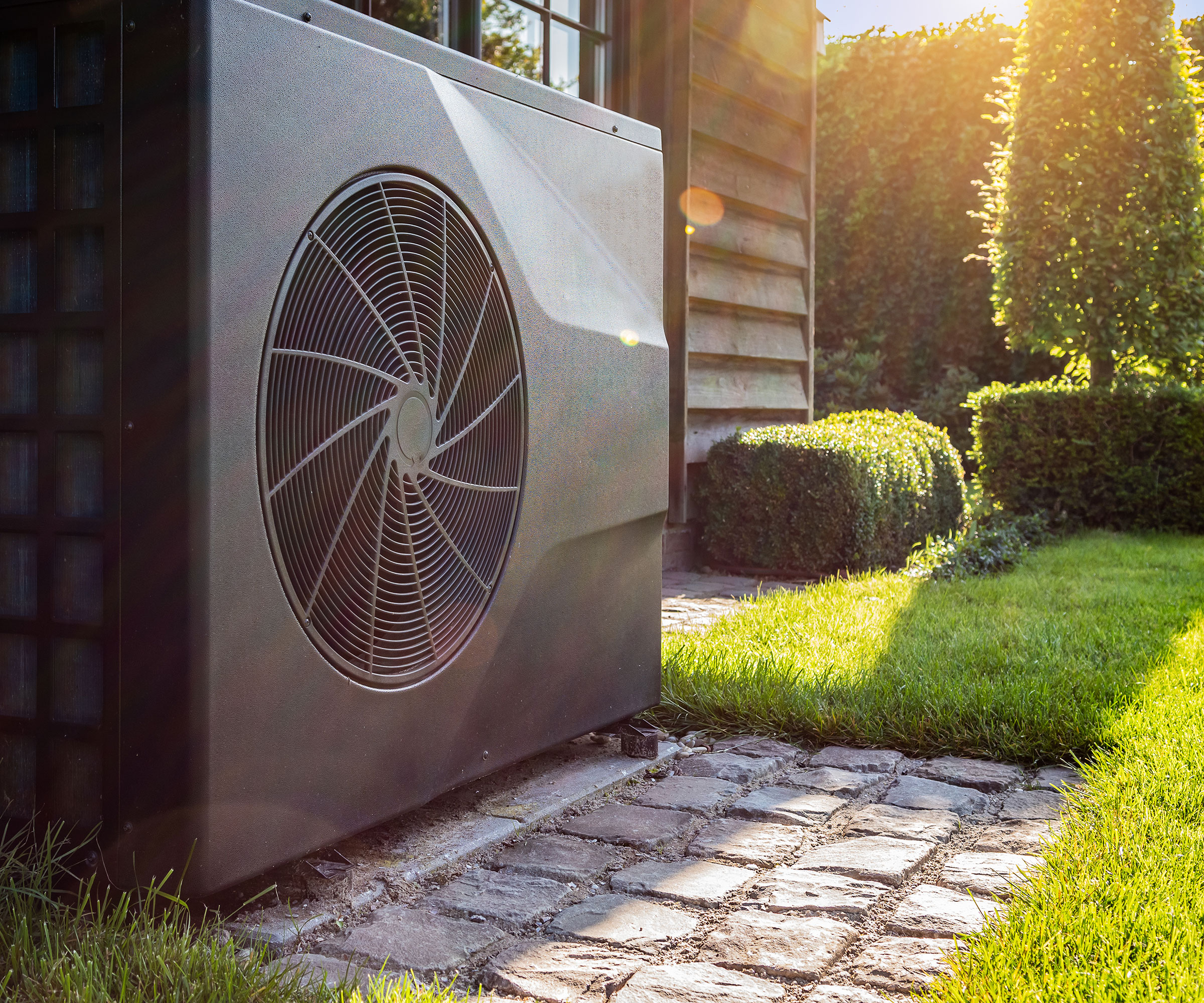
Of course, whatever system you are considering, it's advisable to request an initial site visit and inspection if you're renovating a house and upgrading your heating.
"It is important that your installer thoroughly assesses the heating and hot water requirements of your property to select the correct size of heat pump and heating system to get the best performance," confirms Vaillant's expert. "They will need to complete a survey and heat loss calculation of the building in order to do this."
Likewise, if adding a biomass boiler or heat pump to your self-build scheme, you'll need to provide your supplier with detailed drawings in order for them to calculate and specify the right model and system to suit your needs.
Depending on the size of your home, you may be advised to have one heat pump or two, for example. Or, in my case, when installing a biomass boiler on a Grade II listed building that also had a modern extension, we ended up with a commercial size unit in order to heat radiators, underfloor heating and provide hot water for the home.
As well as the initial install and operating procedure for biomass boilers vs heat pumps, you'll also need to take maintenance into account. Given all three types of system offer a relatively long shelf life, keeping them in good order will serve to increase their life span further.
Find out how to maintain a heat pump to figure out what's expected of you on an annual basis, and also take time to weigh up heat pumps vs gas boilers, and biomass vs gas boilers before making your final decisions.

Sarah is Homebuilding & Renovating’s Assistant Editor and joined the team in 2024. An established homes and interiors writer, Sarah has renovated and extended a number of properties, including a listing building and renovation project that featured on Grand Designs. Although she said she would never buy a listed property again, she has recently purchased a Grade II listed apartment. As it had already been professionally renovated, she has instead set her sights on tackling some changes to improve the building’s energy efficiency, as well as adding some personal touches to the interior.
